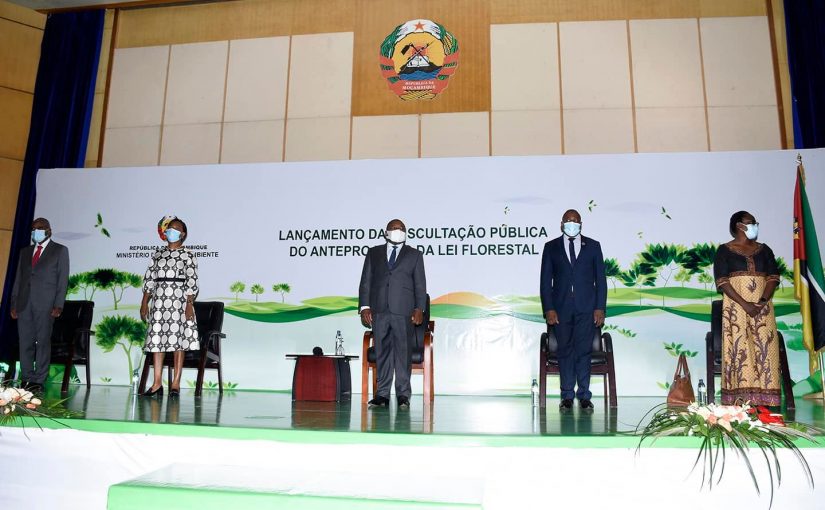Mozambique: Chapo calls on all to take part in “Inclusive Dialogue”
Mozambique: Forestry Law must ensure balance of interests

Photo: Presidency
Mozambican President, Filipe Nyusi, on Monday in Maputo said that the public hearings about the preliminary draft of the new Forestry Law must ensure a balance of interests of several stakeholders from the forestry sector, through the adoption of a more consensual legal framework that promotes progress within society and the economy.
Addressing the launch of the public hearings, Nyusi declared that the review of the law will enable its renewal and modernisation, as well as its adjustment to Mozambican reality so as to respond adequately to future challenges.
“The launch of this nationwide public hearing, under the theme ‘for a sustainable, participatory and transparent management of forestry assets’ is intended to boost the forestry sector in order to guarantee that the existing assets contribute largely to the country’s economic and social development,” Nyusi stated.
Pointing to the national forestry survey of 2017, Nyusi said that Mozambique has about 32 million hectares of natural forests, covering nearly 40 per cent of the territory. Almost 80 per cent of the country’s population obtains from the forests domestic fuel (charcoal and firewood), food, medicines, building materials and raw material for the timber industry.
Excluding forest contribution to domestic fuel, environmental services to society as well as income for local communities based on informal business involving forestry products, Nyusi indicated that estimates point to a two per cent annual contribution of the forests to the Gross Domestic Product (GDP).
Contrary to expectations, over the last 20 years of implementation of the current forestry and wildlife legislation, the country has been increasingly losing its forest coverage. Population growth and a consequent demand for forestry products exert a huge pressure over resources.
“The situation demands special attention from the government in order to improve the forestry administration and governance, promote public and private dialogue and community involvement, to ensure the sector’s contribution to harmonious and balanced growth across the country,” Nyusi added.
Mozambique, Nyusi stated, is a signatory to a wide range of regional and international protocols, treaties and conventions on climate, wetlands, desertification, sustainable management of forests and accountable governance of forests and land.
The review of the law, he said, must take into account challenges such as the need to value non-timber forest products, acknowledging their economic, social and cultural importance; include climate change issues; and boost from just two to four per cent the contribution to the GDP.












Leave a Reply
Be the First to Comment!
You must be logged in to post a comment.
You must be logged in to post a comment.